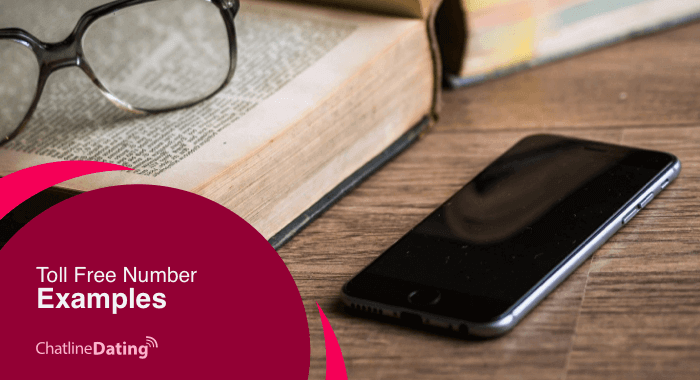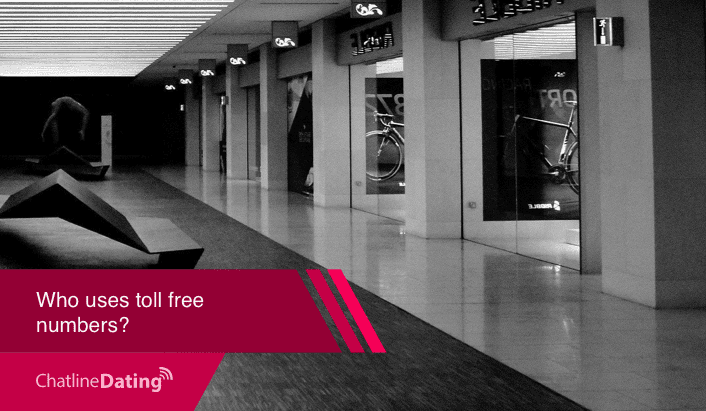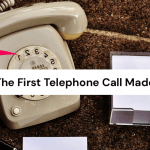All About Toll-Free Numbers

What is a Toll-Free Number?
A toll-free number is a telephone number charged according to the incoming calls instead of charging the source or origin of the call. This means that if you call a toll-free number using a landline phone, the call is free of charge.
Toll-free numbers are characterized by 3-digit codes, which you can call using a landline phone. These numbers allow the callers to get in touch with certain businesses, institutions, and individuals out of their area without having to pay long-distance telephone charges. On the other hand, wireless carriers need to pay for the corresponding airtime depending on the call duration.
Toll-free numbers are specifically useful when calling customer service and call centers. They are meant to provide customers a convenient way to contact companies and businesses using a landline phone. Thus, toll-free services are sometimes referred to as customer service hotline numbers.
Some toll-free numbers are text-enabled, which allows customers to send text messages. In such cases, the company may also reply to the inquiry via text. Companies typically indicate if their toll-free number is text-enabled to inform customers about their options in getting in touch with them.
A toll-free number can either be domestic, international, or universal. To minimize the service cost for inbound international calls, companies can block them accordingly and select specific regions only.
Examples of Toll-Free Telephone Codes

It is easy to recognize a normal phone number from a toll-free number. In a typical scenario, a toll-free number has no area code and contains more digits than a usual phone number. Moreover, toll-free phone numbers usually begin with the following 3-digit codes;
- 800
- 833
- 844
- 855
- 866
- 877
- 888
These prefixes are not interchangeable, which means that calling a toll-free number with a 1-800 prefix is different from calling another number with a 1-888 prefix. The incoming calls for each toll-free number are automatically routed to a specific local phone number. Call center agents, or customer care representatives are usually the ones who attend to these inbound calls.
How to Get a Toll-Free Number
To get a toll-free phone number, you have to get in touch with a service provider and select your preferred toll-free number from their number selector system. You’ll need to purchase this number for it to be ported to your existing local phone number. Most service providers can also make the process of getting a toll-free vanity number simple by offering several options and a free trial period.
How Companies Can Benefit from Having a Toll-Free Number
While some business owners wonder about the usefulness of toll-free phone numbers, seasoned entrepreneurs and top corporations know that toll-free numbers are highly essential because they are beneficial for both businesses and customers. The following are the benefits of toll-free numbers to business owners;
1. Contributes to better customer service and client satisfaction.
Having a toll-free number greatly improves a company’s customer service feature and overall client satisfaction rate. It creates a link between the business and the customers by having an accessible contact number that’s specifically designated for queries and various concerns.
A toll-free number also makes it easier for business owners to track customer satisfaction and product responses. More importantly, customers don’t have to pay for anything to reach out to the company.
2. Enhances the company’s image.
A toll-free number contributes to a strong company image, professionalism, and brand credibility. It readily gives out the impression that the business is legit and always accessible to the consumers. After all, customer service is the main core of every successful business.
3. Serves as an effective marketing tool.
Just like any other promotional medium, toll-free numbers are functional marketing tools as well. By creating different extensions for a toll-free phone number, you can assign different numbers for various marketing mediums such as website advertisements, print ads, billboard ads, and magazine ads. By doing so, you can easily track the volume of calls accordingly to determine which advertising medium is most effective.
4. Enables a wider reach and improves company exposure.
Having a toll-free phone number conveys a bigger and wider presence in the market because it goes beyond the local area code. This is suitable for businesses aiming for a larger audience and wants to penetrate a wide spectrum of markets. Additionally, nationwide access enables a company to extend its reach by using call forwarding features to route incoming calls from different regions to a specific phone line.
5. Generates consumer awareness through product recall.
A toll-free number can easily communicate what a brand is all about by designating a vanity phone number. For example, you can pick a set of numbers that stands for the company name (1-800-BEST-FINDS) or short target words that reinforce the brand (1-800-NATURAL or 1-888-FLOWERS).
Who Uses Toll-Free Numbers?

As a company grows and adapts to its growing market, the number of phone calls would likewise increase. This makes having a professional phone number highly essential. In this modern age, many companies, institutions, and large-scale businesses rely on toll-free numbers for their customer service, promotional, and marketing initiatives. This proves the unceasing relevance of toll-free numbers in a highly competitive business environment.
Let’s explore the different types of businesses and institutions that make use of toll-free numbers;
1. Consumer Goods Company.
A toll-free number usually serves as the company’s direct link to its consumers from different regions. This is why most companies that sell consumer goods and products have a toll-free number to carry out their customer service efforts. Examples are those that sell grocery items, personal care products, electronics, gadgets, and automobiles, among many others.
2. Financial Institutions.
Banks, credit institutions, insurance firms, and investment companies typically have a toll-free number that clients can call anywhere and anywhere. This service is particularly important for those with corporate accounts and huge investments that operate internationally. A toll-free number also makes it possible for the account holders to reach the institution for important concerns and business transactions.
3. Chat Lines and Phone Dating Hotlines.
Chat line companies and dating hotlines usually have a toll-free number to enable their subscribers to access or verify their accounts or to inquire about their services from anywhere. The toll-free number also serves as the customer service helpline that handles different concerns such as how to use the chat line service and steps to avail a membership package.
Chat lines companies also use a toll-free number to provide free trial access to potential customers living in North America.
4. Government Services and Organizations.
Some U.S. government agencies have a toll-free number that citizens can call for specific inquiries on basic public services or report a situation. Here are some examples of government toll-free numbers;
- Health Care Financing Administration Medicare Hotline (800) 638-6833
- Federal Information Center Nationwide Toll-Free Number (800) 688-9889
- Federal National Mortgage Association Public Information (800) 732-6643
5. Reality TV Voting Line and Entertainment Hotline.
Some producers of reality TV shows and talent programs make use of toll-free numbers to initiate audience participation strategies. The most common example is the American Idol singing competition. In this show, the audience can cast their vote for their preferred contestants by calling a toll-free number.
Each contestant has a designated toll-free number that changes every week and is essentially in accordance with their order of appearance in the show. The voting lines open upon the cue of the program host, which leaves the fate of each contestant on the audience’s votes. An example is 1-866-IDOLS-ALEX (for a contestant that goes by the name of “Alex”).
6. Non-Government Organizations.
Non-government organizations make use of toll-free numbers to take in donations and pledges over the phone. These are helpful during emergency relief operations and in delivering information and advisories to the public pertaining to a situation. Having a toll-free number specific for relief operations also encourages many people from different regions to send in their help and donations via phone call.
7. Non-Profit Helplines.
Non-profit organizations and agencies use toll-free numbers to disseminate information, offer advice, provide referrals, and extend support to their callers. An example is the Childhelp toll-free hotline (1-800-4-A-CHILD) which aims to help children that suffer from abuse and neglect.
The Pros and Cons of Having a Toll-Free Phone Number
The major deciding factors for many business managers and entrepreneurs as to whether they should have a toll-free number or not is the type of business they are operating and how much they can benefit from it. For some, how they intend to handle their customer service features is also a contributing factor.
The question is, should you get a toll-free phone number for your business?
Like any form of business tool, you have to study closely if having a toll-free number applies to your overall operations. Let’s outline the following pros and cons to determine if it’s the right resource for you;
Pros:
- Your customers can call you anytime without having to pay for call charges. This makes it easier and more convenient for them to get in touch with you.
- A toll-free number is easy to remember, and you have the option to customize it so that your customers can recognize your brand right away.
- You can gain more trust from your customers since your toll-free phone number can serve as a professional representation of your business.
- Toll-free numbers typically generate good impressions from consumers and make even a small and start-up business look more credible.
Cons:
- A toll-free number can be an additional business expense for you, especially if you want a vanity number representing your business’s nature.
- Using a toll-free number for customer service could make you look distant. Your customers can easily assume that they would be listening to an automated message instead of talking to a live agent.
- Toll-free numbers may trigger unfamiliarity to customers since they look different from a typical local phone number.
- It is possible to encounter competition for the best toll-free numbers. This could keep you from getting what you particularly prefer.
Our Final Thoughts on Toll-Free Numbers
Toll-free numbers serve as a good representation for growing companies. Regardless of industry and nature of business, every legitimate company needs a functional tool that would link them to their customers anytime. In this sense, a toll-free number serves as an efficient way for customers to contact businesses.
If you’re running a start-up business, you can conveniently get away with a local business number. However, as your business grows and gains more customers, a local number may not be sufficient to handle all the incoming calls. This makes a toll-free number essential to maximize competence and keep up with the big players in the industry. In the end, what’s best for your business and how you can serve your customers better are all that matter to get ahead.













